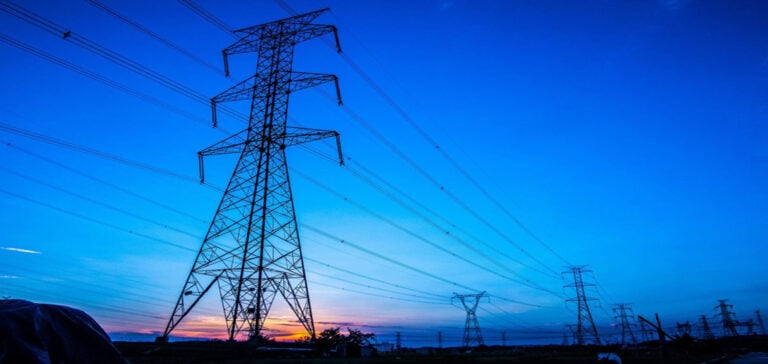The expansion of Réseau Électrique in the Netherlands is getting more complicated. Indeed, the increasing pace of demand for additional transmission capacity is outstripping the speed at which network operators can expand the power grid. Although work on the network is underway in all regions, the billions invested and the additional measures are unfortunately not enough. Network operators report that the Netherlands is entering the next phase, where network access will come under even more pressure. Without these drastic measures, housing construction, economic growth and sustainability in the Netherlands will slow down. In more and more places, getting a new connection or boosting the power supply to a business or home is no longer a matter of course. This will require a serious acceleration of power grid expansion.
The Energy Challenge in the Netherlands
The country faces a major energy challenge. Expanding the power grid is critical to the nation’s future.
Mass Switchover to Electricity in the Netherlands
The energy transition involves a massive transformation of the energy system, as we use more and more electricity. The number of heat pumps installed will rise to 170,000 this year, an increase of 60% compared with 2022. This figure will continue to rise, reaching 300,000 a year. There are currently 500,000 recharging points in the Netherlands. This figure will continue to rise, reaching 2 million by 2030 (500 new charging stations per day). What’s more, companies are abandoning natural gas en masse and demanding a (more powerful) connection to the electricity grid.
There are currently more than 105 gigawatts (over 150 times the capacity of Amsterdam) of requests for reinforcements or new connections for the purchase of electricity. This includes demands for large batteries (75 GW) and for industry, businesses, data centers, hydrogen plants and new real estate developments. All these developments are taking place much faster than the expansion of the power grid. Rising energy prices and growing climate ambitions are accelerating this trend. Users are massively turning to electricity.
Networks saturated in all regions
Studies published today show that there is no longer any room on the network for companies in these regions. This means they face long waiting times. In addition, maximum grid capacity has also been reached in Noord-Holland for companies seeking a connection or an increase in capacity. At national level, the trend is that more and more regions are approaching capacity limits. What’s more, network operators are finding that the electrification of businesses and households is also increasing the load on the district network. Unfortunately, this means that even small businesses and consumers will have to wait longer to be connected or upgraded. Network operators are aware that these developments have a huge impact on Dutch households and businesses.
The Accessible and Sustainable Energy Challenge
Pressure on electricity supplies is likely to slow housing construction, economic growth and the achievement of sustainability in the Netherlands. It’s an uncomfortable truth we face in this transition. Energy infrastructure is the foundation of our society. Keeping it as accessible as possible requires not only major investment in the power grid, but also a change in the way we all behave. Electricity is no longer infinitely available.
Flexibility for businesses and households
The new energy system requires all users to behave differently, using electricity mainly when energy supplies are high. Network operators are counting on rapid implementation of the measures announced by the Cabinet today, including accelerating the introduction of grid-connected vehicle charging stations and the widespread use of controllable smart appliances. Network operators also welcome the Cabinet’s decision to allocate 166 million euros for an Energy Center Incentive Program. This is where companies coordinate their local demand and supply of electricity, reducing the amount of space required on the grid.
Ongoing commitment to expansion
Grid operators are hard at work every day on the major transformation of the Dutch energy system. Total investments are expected to exceed 5 billion euros this year. By 2025, investment by network operators will have risen to 8 billion euros a year. To enable network work, governments need to make faster decisions on when and where to build energy infrastructure. They must also speed up the provision of land for network expansion, as well as authorizations and procedures. The main focus for network operators is to deploy infrastructure faster. But expansion alone is not enough.
The industry is committed to using the network more intelligently, for example by making peak-hour avoidance more financially attractive and less compulsory, and by making greater use of the network where it is safe to do so. To this end, stakeholders, governments, ACM and network operators are also working together via the National Action Program against National Grid Congestion (LAN). Grid operators believe that the measures announced by the government today will relieve pressure on the power grid and allow it to be better utilized, enabling them to connect more customers. This will reduce delays in housing construction and the impact on economic growth, and make the Netherlands more sustainable.
Final Analysis
The challenge of expanding the electricity grid in the Netherlands is a complex one, but crucial to the country’s future. The transition to greater use of electricity and growing pressure on the grid call for urgent action. Without rapid, intelligent network expansion, housing construction, economic growth and sustainability could be seriously compromised. It is imperative that authorities and industry players work together to ensure a reliable and sustainable electricity supply for all Dutch citizens and businesses.






















